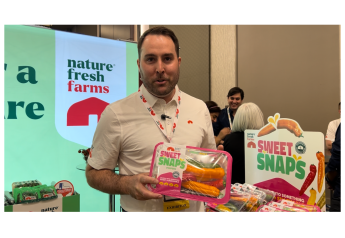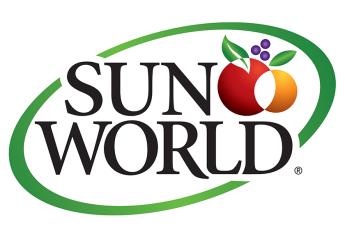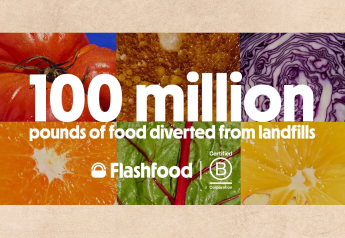Be prepared for the return of onsite FDA inspections

The fresh produce industry should be prepared for the post-pandemic return of routine Food and Drug Administration inspections.
That was the message from David Durkin, principal with Olsson Frank Weeda Terman Matz P.C. (OFW Law), at the United Fresh Produce Association’s June 3 Reimagine Conversations web seminar that offered an up-close look at interactions with the Food and Drug Administration.
Inspection process
While reminding the audience his presentation was not legal advice, Durkin reviewed the various types of inspections from the FDA and what the agency is looking for.
One type is the programmatic inspection, which happens according to a schedule that is set up by FDA district offices. A second type of FDA visit is the follow-up inspection that comes as a result of checking on whether or not a company did the things it said it would do after an initial inspection.
A third type of inspection would be if the supplier has had an event like a recall, or where there is an outbreak investigation active.
“It’s important to ask at the beginning of an inspection, what kind of inspection (it) is so you can understand how to deal with the investigators,” Durkin said.
Whereas a program inspection could be either state or FDA officials, Durkin said a follow-up inspection is more likely to have FDA staff involved.
Inspections are typically intrusive, and more so if there is a threat to public health involved, he said. The regulatory history of a facility is important as well, he said.
“If you had a good facility for a number of years, and very clean inspections, you’re very likely to have a very clean inspection again,” he said.
On the other hand, if a facility has been involved in recalls within the past couple of years, there may be an increased level of scrutiny from inspectors.
When an inspector shows up at a facility, Durkin said the company has the opportunity to show inspectors how food safety is integrated into the operations.
For the FDA, Durkin said the inspection is an opportunity for inspectors to learn how the produce company supports the agency’s public health mission.
“Do not underestimate the value of demonstrating to the FDA that you know what you’re doing when it comes to food safety,” he said. “If they believe walking in that you know what you’re doing with regard to food safety, then the whole day is going to go a lot easier.”
Durkin said FDA has several goals when it arrives for a programmed inspection. Those include:
- To evaluate a company’s written food safety policy;
- To conduct microbiological sampling in zones one (food contact) to four (outside the packing house); and
- To compare the DNA fingerprints of any pathogens found with the more than 600,000 political, environmental and product isolates that are in the FDA’s genome tracker database.
Durkin said FDA reserves the authority to conduct investigations against food companies whose products have caused human illnesses.
In fact, he said the Department of Justice has a policy in place in which, if there is a foodborne disease outbreak in this country — and if deaths are involved — the Department of Justice and the FDA will open a criminal investigation.
Pathogen database
In 2013, FDA started gathering isolates for particularlpathogens in the genome tracker database, including salmonella, listeria, E. coli and more.
Since this genome tracker database was started in 2013, it has grown from just a few thousand samples to more than 600,000 different isolates.
“Obviously, this is slowed down a little bit with the decrease in on-site inspections, but they are building this library, and so anytime they find a pathogen in your facility, the first thing they’re going to do is check it to see if it’s ever been found anyplace else, including your own facility,” Durkin said.
If a pathogen has been previously found at your facility, that can have consequences, he said.
“For example, if they find Listeria monocytogenes in your facility, and they found it before in your facility, FDA will take the position that it is in your facility, it was in your facility, and as a result, the entire time that the Listeria monocytogenes has existed in your facility and the products produced in that facility can be considered adulterated as a matter of law.”
One of the definitions of adulteration is that the produce would have been prepared, packed or held under unsanitary conditions whereby it may have become contaminated, Durkin said.
Priorities for inspections are initially “for cause” inspections relating to a recall, or if a facility is associated with a foodborne disease outbreak.
“FDA has not gotten down to really, really routine on-site inspections yet, but as the country opens up, post-pandemic, we will return to the days where FDA can come in at any time and simply present credentials and a badge and engage in an inspection,” he said.
Knowing that FDA inspections are coming back, Durkin said produce companies should take the opportunity to review their written food safety systems and training in place. Training includes not only the person who’s the preventive controls qualified individual (PCQI), but also the people who will accompany FDA in the event of an inspection, the company’s FDA liaisons, the people who are going to be authorized to speak for the company during inspection. That includes people such as security personnel, the receptionist and others.
“When (the FDA) shows up, you should plan to have food safety plans and at least 90 days’ worth of monitoring and verification records available at any time,” he said.
While that is not a regulatory requirement, Durkin said it is a best practice.
Produce companies should also develop inspection day policies, he said.
“You should have a written policy that says ‘FDA, if you want to ask us a question, these are the people you’re going to ask that question of and those are the people who are authorized to answer for the company,’” he said.
Unlike the Occupational Safety and Health Administration, FDA does not have the authority to go out and talk to anybody that it wants to in a facility, he said.
In addition, Durkin said that companies with equipment that is considered a trade secret should have a written policy describing that the equipment is a trade secret matter, and to ask the FDA to treat it as such.
Finally, he said, produce companies should not sign affidavits presented by the FDA.
“Don’t sign affidavits,” he said. “No good can come from it, you don’t know what FDA is going to do with that affidavit.”
Sometimes a food company can get a copy of an affidavit, which he said can be really valuable in crafting a response to an inspection.







